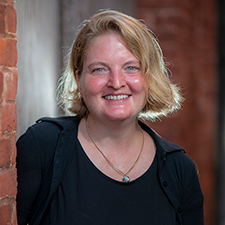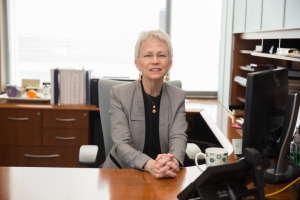
Georgia’s population is getting older by the minute. Even though that might seem like an obvious statement, it is no laughing matter.
Currently, an estimated 1.4 million Georgians are 65 and older, but that number is expected to jump significantly over the next decade.
While Georgia is the eighth-most populous state in the country, it is the sixth-fastest-growing state when it comes to people 65 and older, explained Dr. Babak Baban, an immunologist and associate dean for research at The Dental College of Georgia.
“Aging changes our body and every aspect of how the body functions,” Baban said. “So, aging basically has an impact on different functions and different systems in our body. Therefore, we have to look at it as what we call ‘successful aging’ versus age-related diseases.”
From 2000 to 2030, Georgia’s population of people age 65 and older is expected to increase by a whopping 143%, according to the Division of Aging Services in the Georgia Department of Human Services.
Last year, the Peach State was ranked seventh among the nation’s most desired destinations for retirees and three cities in Georgia — Atlanta, Augusta and Savannah — were among the top 150 cities for retirees in the United States, according to U.S. News & World Report.
By 2030, one in every five residents in this country will be retirement age and retirees will be outnumbering children for the first time in U.S. history, according to the U.S. Census Bureau.
Needless to say, this aging trend is expected to have a significant impact on the health care system in Georgia, as well as across the country.
While the World Health Organization estimates that improved life expectancy will lead many adults to live to age 85 and older, there is little evidence to suggest older people today are experiencing their later years in better health than their parents.
Serious diseases like hypertension, cardiovascular disease and diabetes remain a chief cause of death in aging populations and are often associated with age-related inflammation, Baban said.
“We have global aging issues,” Baban explained. “Basically, the whole population is aging, but aging now is different. The way we look at the aging is more than just chronological age. We are now looking at a person’s biological age, which is going against the chronological age.”
Biological age refers to the age of the cells in a person’s body, compared to their chronological age, which is irreversible. Biological age may vary depending on lifestyle factors such as diet, exercise, sleep and stress, Baban said.
“We all want to have a healthier society,” Baban said. “It is a global goal, so I think it’s very important how we look at aging.”
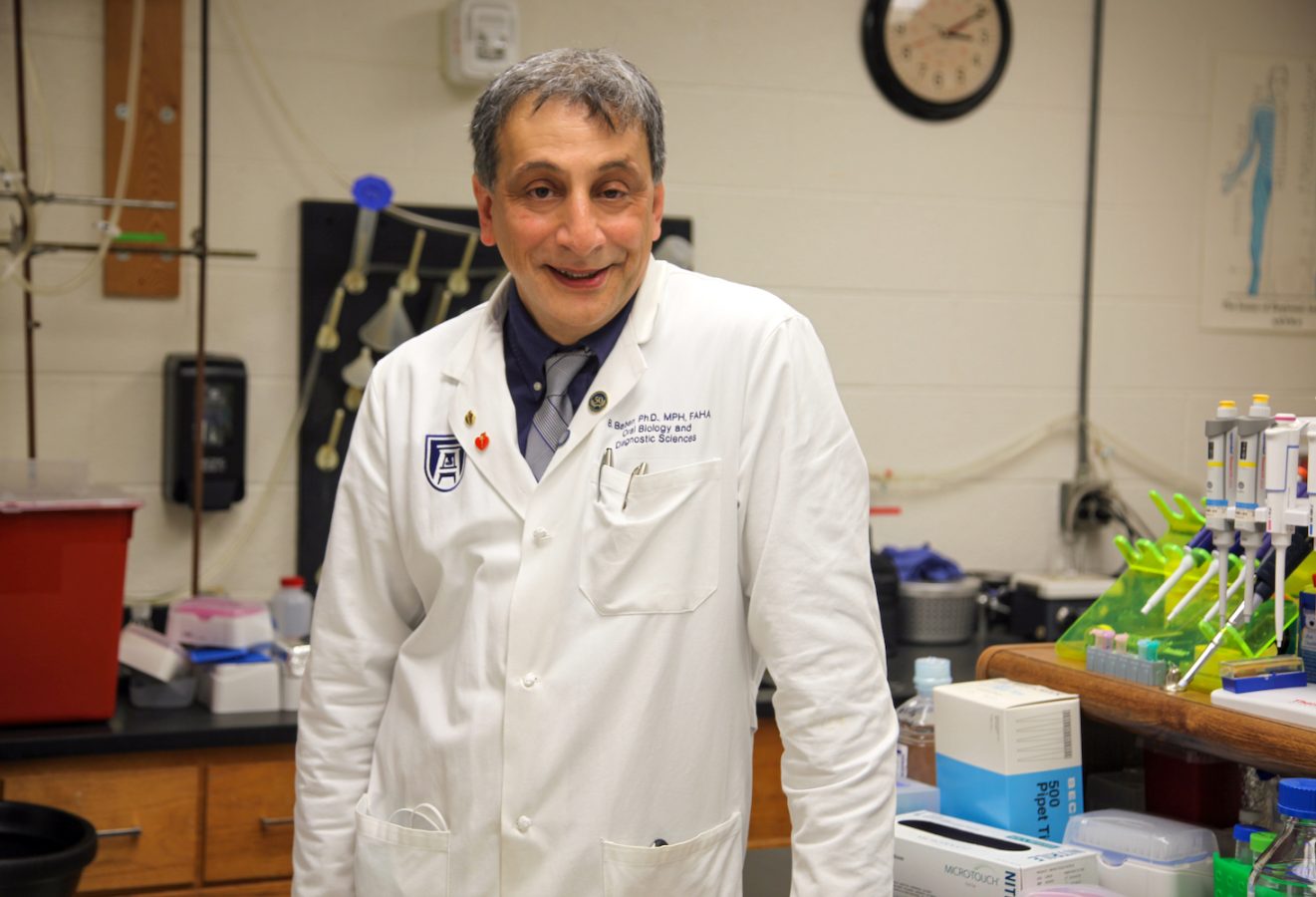
Earlier this year, Augusta University President Brooks A. Keel, PhD, announced the formation of a new transdisciplinary faculty research cluster in “inflamm-aging” and brain aging, which will be the focus of a three-year recruitment effort to grow the university’s research footprint.
As people get older, they experience a low-level of inflammation, described as “inflamm-aging,” driven by an increase in molecules in the blood called cytokines. This age-related inflammation has been linked to serious chronic diseases, including Alzheimer’s disease, cardiovascular disease, atherosclerosis, type II diabetes and cancer.
The main feature of the aging process is chronic and progressive inflammation, which is a significant risk factor in morbidity and mortality. While most age-related diseases include inflammation, its potential cause and role in adverse health outcomes is still widely unknown.
Beginning in Fiscal Year 2022, Augusta University will initiate cluster recruitment for faculty research positions to study age-related diseases. Two positions will be added to the Medical College of Georgia and one each to the School of Computer and Cyber Sciences, The Dental College of Georgia, and the colleges of Nursing, Allied Health Sciences and Science and Mathematics.
That number is expected to grow in years two and three with the anticipated recruitment of two additional faculty positions within MCG and one additional position in the other participating colleges each year.
“The ultimate goal of this initiative is to address the topic of aging,” Baban said. “Chronologically, we cannot reverse aging, but, biologically, we can prepare for aging.”
As Augusta University seeks to be a top-60 National Institutes of Health-funded institution by 2030, priority recruitment targets will include individuals with NIH R01 or equivalent status, a mechanism used by NIH for health-related research and development. The university intends to use mechanisms such as endowments to recruit productive and accomplished research faculty nationally.
“If we’re going to grow to become a top-60 NIH-funded research institution by 2030, we have to think big,” Keel said earlier this year. “We have to think about how we leverage our collective expertise, knowledge and resources to provide continued impact for our communities, state and nation. As the state’s only public academic medical center, this is what we were made to do.”
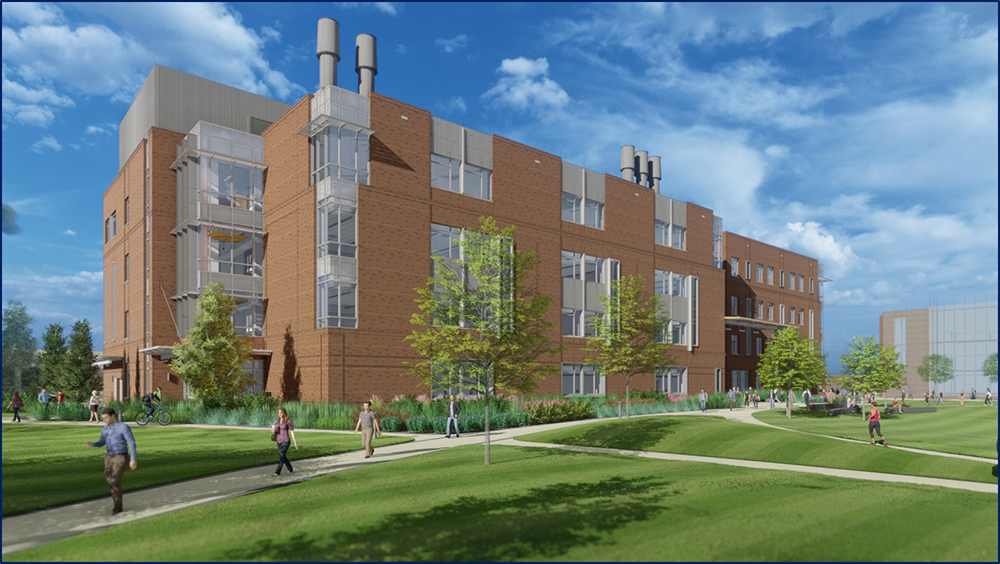
Baban and Dr. Mark Hamrick, a bone and muscle biologist and senior associate dean for research in the Medical College of Georgia, will serve as co-leads on the recruitment steering committee.
“Aging is really a systemic issue. Therefore, one of the things we’re very interested in is the crosstalk among organ systems,” Hamrick said. “We know that changes in physical activity, as well as in diet, have some impact on the development of issues like cognitive decline and Alzheimer’s. So, we want to look at questions such as, what are the actual mechanisms behind that? Is it simply improvement in vascular function? That may be one thing. Are there factors that might be secreted by muscle or by bone that might impact the brain or vice versa?”
These are significant questions that need to be studied to help aging Georgians live longer and healthier lives, Hamrick said.
“Nationally and globally, the size of the aging population is increasing,” Hamrick said. “But, along with that increase in the aging population, there is an increase in the incidence of cognitive decline. That’s particularly significant within Georgia because we have a massive growing aging population. Georgia is ranked sixth in the nation for its aging population and South Carolina is fifth in the nation over the last 10 years.”
Since Augusta University is located on the border of Georgia and South Carolina, Hamrick said it is crucial for the local medical community to prepare for an increase in age-related diseases.
“With an increase in the aging population, you have a massive increase in the number of individuals who suffer from Alzheimer’s disease and related dementia,” Hamrick said. “This, in turn, has a huge societal cost on the families in terms of the cost of caregiving and the lack of affordable access to caregivers. So, it is something that is a significant concern, certainly for the entire country, but for our state, in particular.”
Brain aging is also associated with specific aspects of inflammation within the brain that can affect cognitive activities and disease progression, Keel said.
With the Medical College of Georgia’s existing research expertise in neurogenerative and neuropsychiatric disorders, brain injury and learning and memory disorders, the study of growth specific to brain aging will allow for a more focused effort related to neuroscience and regenerative medicine research, he said.
“We have some of the most talented and sought-after scientists in the world, but they can’t do what they do best without the infrastructure to support their work,” Keel said. “Adding faculty with research funding means more staff, lab space and resources — all of which are essential to growing our research footprint.”
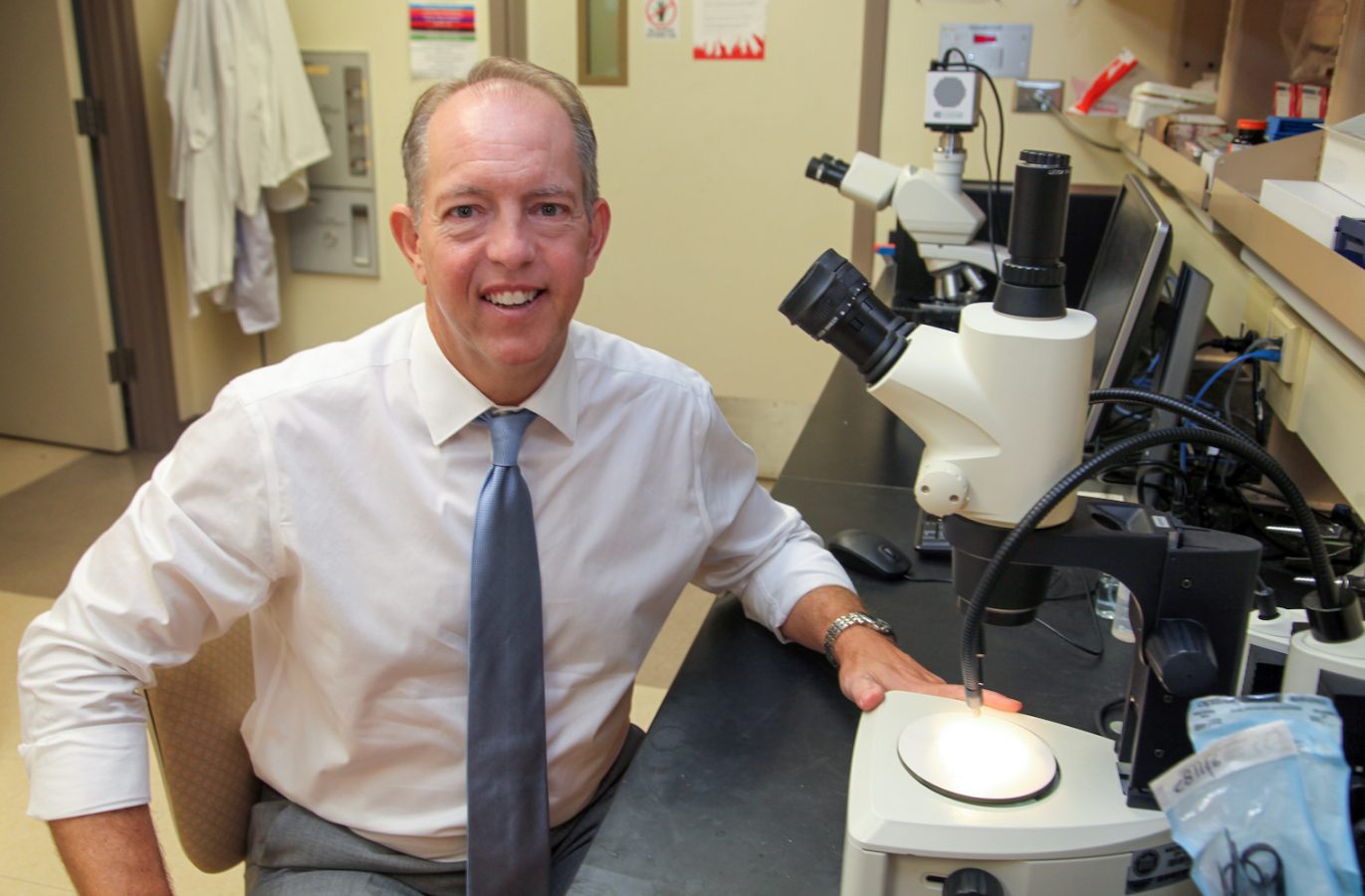
Hamrick said there are many areas of research that Augusta University and its cross-disciplinary approach can focus on regarding inflamm-aging and brain aging.
“We will be leveraging some of our unique strengths,” Hamrick said. “For example, we have an excellent group in vascular biology that is nationally and internationally renowned. In addition, we have an incredible strength in vision research. We’re close to the top 30 in National Eye Institute funding.
“We also have the state’s only dental college. And we have an excellent group of musculoskeletal researchers that are funded through the National Institute on Aging.”
All of these different areas of research will be able to come together to improve the health of the region’s aging population, Hamrick said.
“I think we have to look at aging in a different way,” Hamrick said. “Just a singular focus on the brain health itself is not the way to go. We need to think about it in a more integrative perspective that recognizes and acknowledges the impact of these other systems throughout the body.”
Once hired, several of the new members of this transdisciplinary faculty research cluster will be located on the fourth floor of the university’s new College of Science and Mathematics building on the Health Sciences Campus, along with other places on campus where collaboration is possible. However, university officials anticipate the need for an additional research building to accommodate the expected growth in funded research.
“We look forward to leveraging this historic initiative to grow support for our research community so they have what they need to succeed in their groundbreaking work,” said Deborah Vaughn, vice president for philanthropy and alumni engagement.
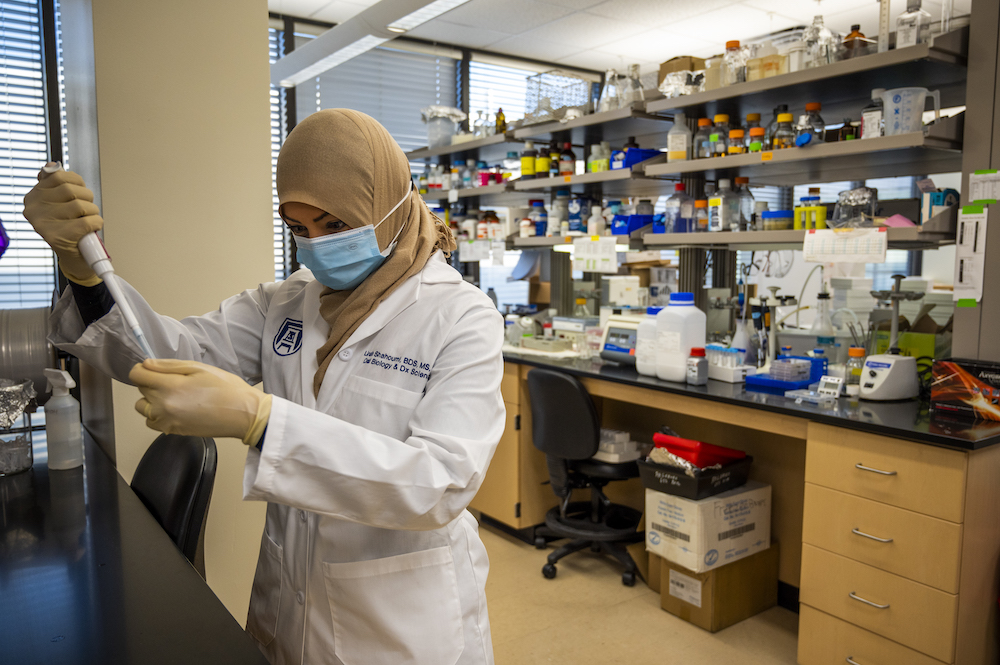
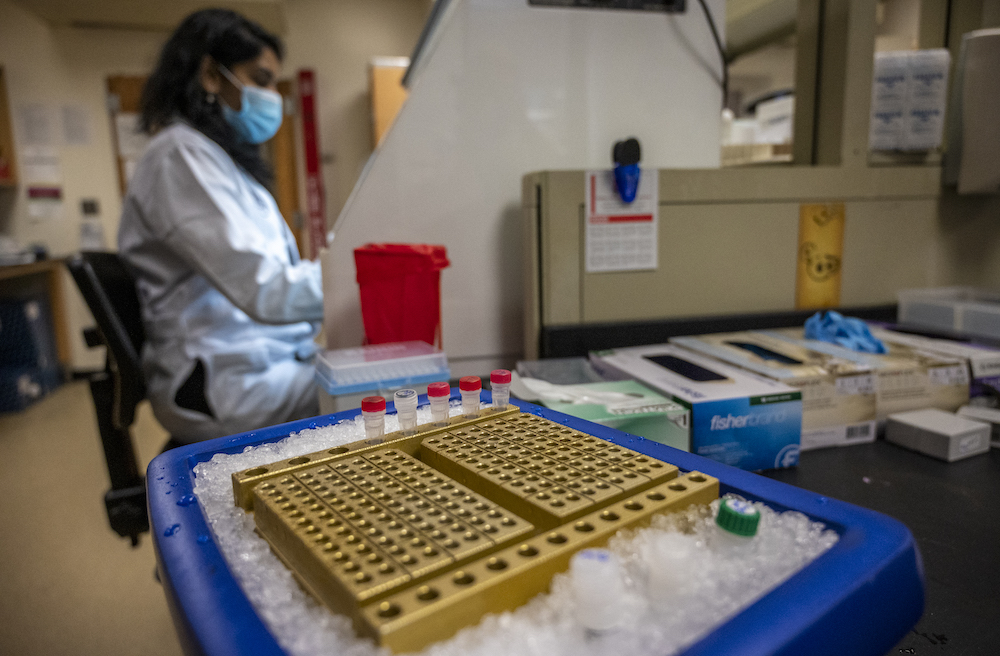
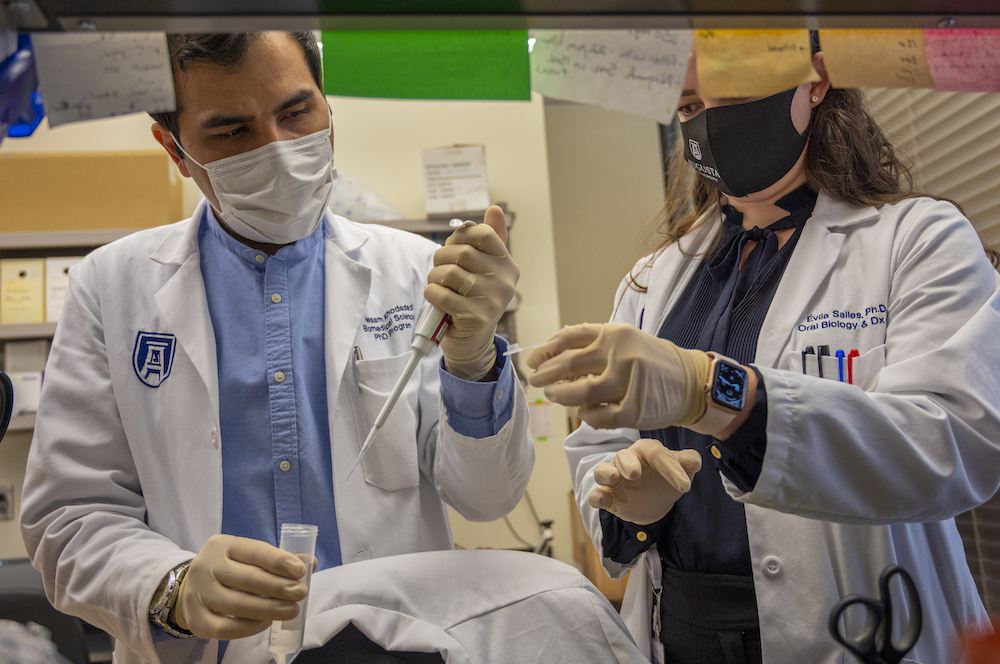
Many departments and colleges at Augusta University have already been hard at work looking at the different aspects that impact a patient’s biological age, Hamrick said.
For example, Dr. Elizabeth NeSmith from the College of Nursing worked with several colleagues, including Dr. Yanbin Dong, a molecular geneticist and cardiologist at Augusta University, to study the influence of accelerated biologic aging, chronic stress and inflammatory response on outcomes following trauma.
While chronic stress and accelerated aging have been shown to impact the inflammatory response and related outcomes like sepsis and organ failure, the data related to patients experiencing trauma was lacking. Therefore, NeSmith headed a study to investigate potential relationships between pre-trauma stress and post-trauma outcomes, Hamrick said.
In this study, chronic stress and accelerated biologic aging were compared to the occurrence of systemic inflammatory response syndrome, sepsis and organ failure in trauma patients. The results found a significant, overall association between susceptibility to sepsis and accelerated biologic aging. In addition, there were also significant negative associations between mean cytokine levels and chronic stress.
“That’s not about just chronological aging, but biological aging,” Hamrick said. “They studied questions such as, did any of these trauma patients show markers of accelerated aging? A lot of those factors are associated with poor lifestyle choices that produce systemic changes. Those would be markers of accelerated biological age versus chronological age.
“I think that kind of research is a great example of taking advantage of the resources that are here and building on existing strengths.”
Augusta University can become a “hub” for research in inflamm-aging and brain aging, Baban said.
“I’m very excited about the potential we have here to really look at this comprehensive issue of aging,” Baban said. “When it comes to the science of aging, there are no borders. Aging is a major topic that requires a transdisciplinary approach and that’s why I believe this initiative is so important.
“This is a global goal in aging. We want to have a healthier society and this initiative will help us get there.”
